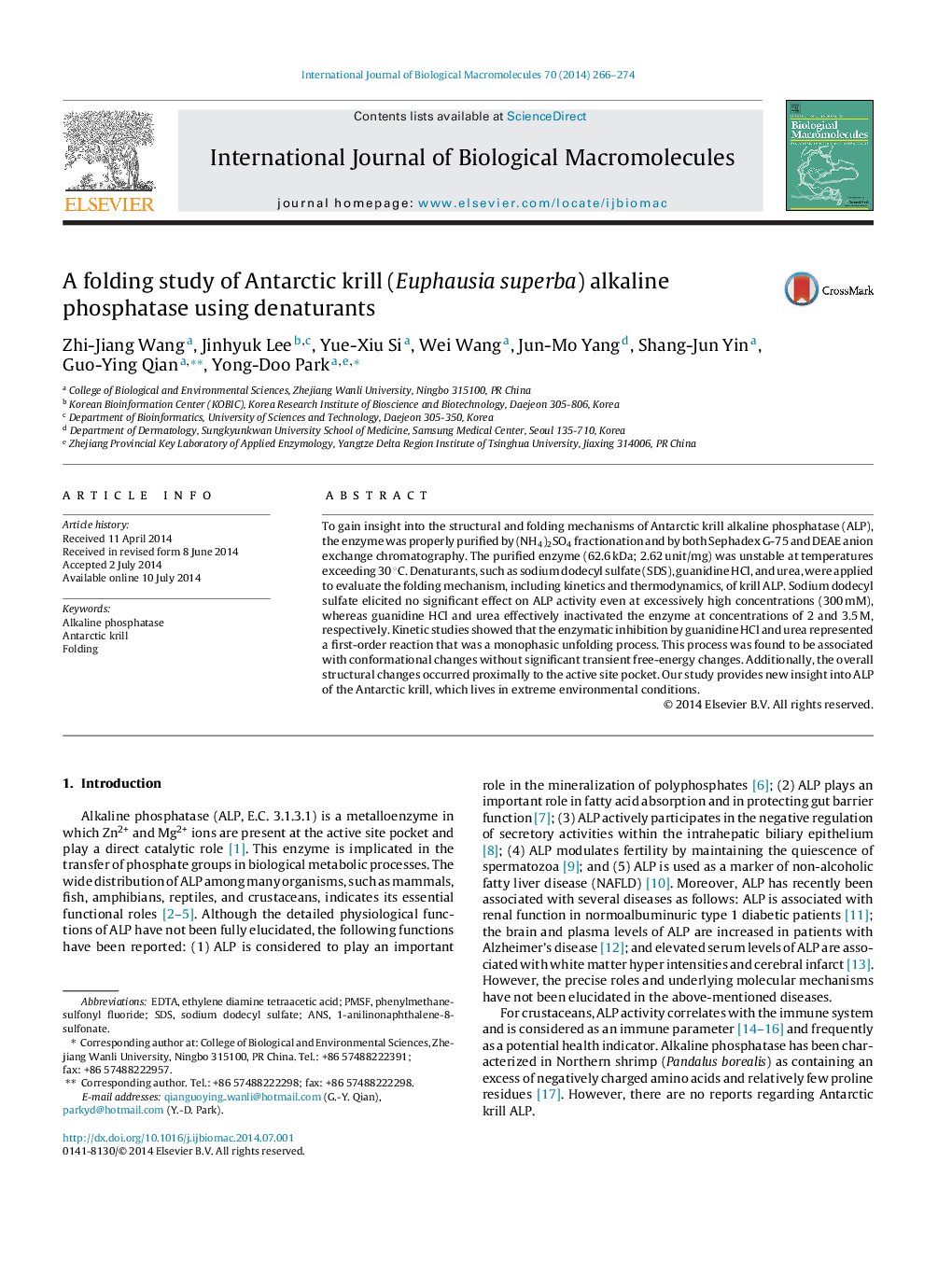| Article ID | Journal | Published Year | Pages | File Type |
|---|---|---|---|---|
| 1986337 | International Journal of Biological Macromolecules | 2014 | 9 Pages |
To gain insight into the structural and folding mechanisms of Antarctic krill alkaline phosphatase (ALP), the enzyme was properly purified by (NH4)2SO4 fractionation and by both Sephadex G-75 and DEAE anion exchange chromatography. The purified enzyme (62.6 kDa; 2.62 unit/mg) was unstable at temperatures exceeding 30 °C. Denaturants, such as sodium dodecyl sulfate (SDS), guanidine HCl, and urea, were applied to evaluate the folding mechanism, including kinetics and thermodynamics, of krill ALP. Sodium dodecyl sulfate elicited no significant effect on ALP activity even at excessively high concentrations (300 mM), whereas guanidine HCl and urea effectively inactivated the enzyme at concentrations of 2 and 3.5 M, respectively. Kinetic studies showed that the enzymatic inhibition by guanidine HCl and urea represented a first-order reaction that was a monophasic unfolding process. This process was found to be associated with conformational changes without significant transient free-energy changes. Additionally, the overall structural changes occurred proximally to the active site pocket. Our study provides new insight into ALP of the Antarctic krill, which lives in extreme environmental conditions.
